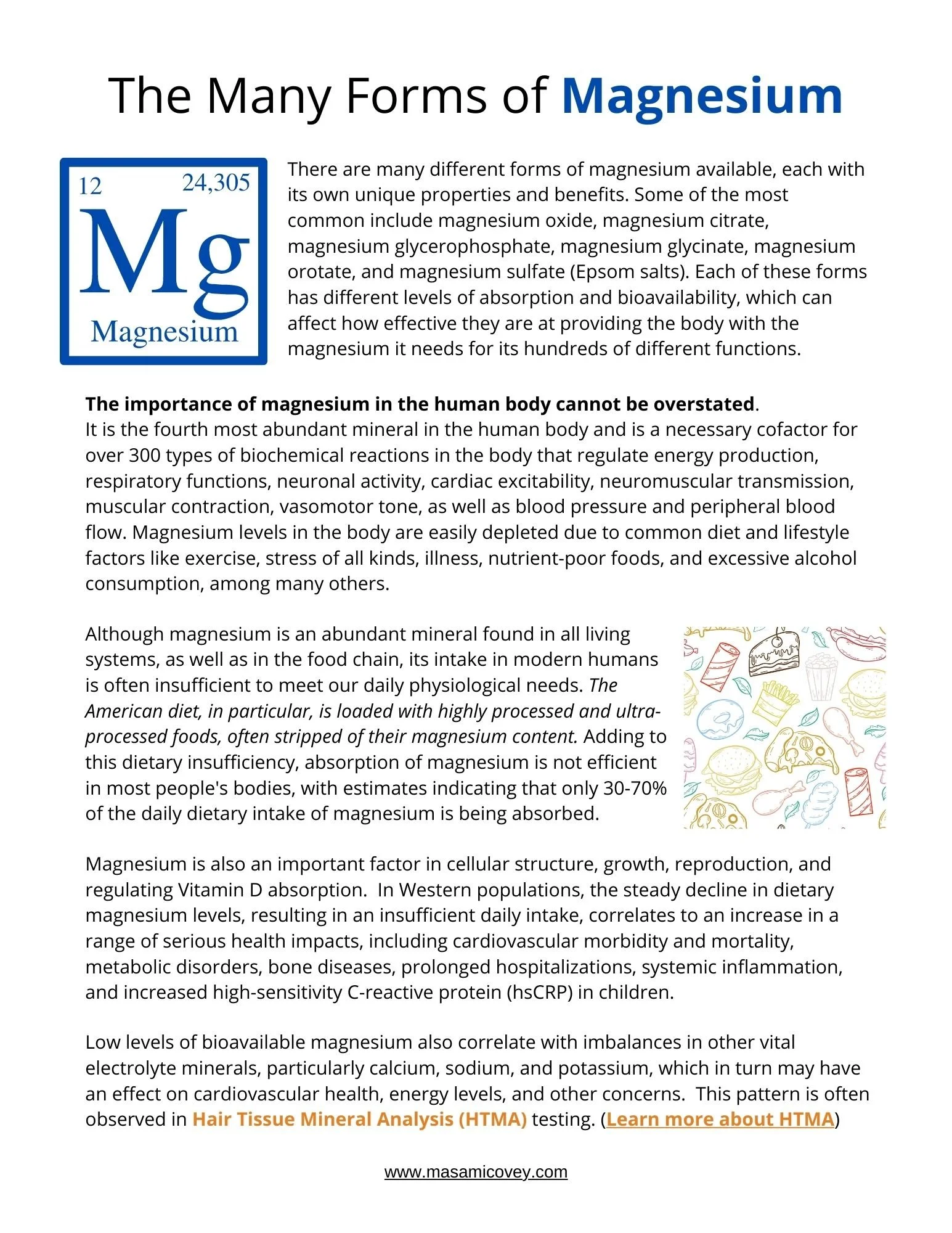Magnesium is an essential mineral abundant in plant cells that plays a crucial role in a vast number of bodily functions, including maintaining the health of the brain. Adequate magnesium levels have been linked to improved cognitive function, memory, and mood.
Studies have shown that magnesium can help regulate neurotransmitters, which are important for brain function. It has also been found to reduce inflammation in the brain and protect against oxidative stress.
Ongoing evidence of the neuroprotective effects of magnesium was recently published in the European Journal of Nutrition, following another key analysis of National Health and Nutrition Examination Survey (NHANES) data published last year in Alzheimer’s & Dementia. Both studies showed that a higher total intake (diet and supplemental) of magnesium was associated with better cognitive function among participants aged 60 and older.
Patterns of magnesium intake also suggest that the benefits of magnesium reflect long-term exposure to dietary magnesium. The impact of magnesium is quite substantial: “being in the top quintile of intake (550 mg/day or more) was associated with 0.2% larger gray matter volume and 0.46% right hippocampus volume, which corresponds to roughly 1 year of aging in a 55-year old, and likely to a lower risk of dementia later in life,” as observed in previous studies.
Unfortunately, many people—in fact, a majority of people—do not consume enough magnesium in their diets due to nutrient deficiencies in our food supply and diets based on ultra-processed products. This can lead to a host of health problems, including neurological issues and dementia-related risks.
To ensure you are getting enough magnesium, it's important to eat a diet rich in magnesium-rich foods such as leafy greens, pumpkin seeds, whole milk yogurt, and avocados.
If you are struggling to get enough magnesium through your diet, supplements are also recommended.
Download our guide on The Many Forms of Magnesium to learn more about which types of magnesium supplements may benefit you most, and how to order them.
Watch our YouTube video on the benefits of Magnesium
Magnesium is a vital mineral that plays a key role in brain health at every stage of life, but especially as we age.
By making a conscious effort to include magnesium-rich foods and supplements in your diet, you can actively support your cognitive function, memory, and overall mood.
References
Alateeq K, Walsh EI, Cherbuin N. Dietary magnesium intake is related to larger brain volumes and lower white matter lesions with notable sex differences. Eur J Nutr. 2023 Mar 10. doi: 10.1007/s00394-023-03123-x. Epub ahead of print. PMID: 36899275.
Ozawa M, Ninomiya T, Ohara T, Hirakawa Y, Doi Y, Hata J, Uchida K, Shirota T, Kitazono T, Kiyohara Y. Self-reported dietary intake of potassium, calcium, and magnesium and risk of dementia in the Japanese: the Hisayama Study. J Am Geriatr Soc. 2012 Aug;60(8):1515-20. doi: 10.1111/j.1532-5415.2012.04061.x. Epub 2012 Aug 2. PMID: 22860881.
Tao MH, Liu J, Cervantes D. Association between magnesium intake and cognition in US older adults: National Health and Nutrition Examination Survey (NHANES) 2011 to 2014. Alzheimers Dement (N Y). 2022 Feb 1;8(1):e12250. doi: 10.1002/trc2.12250. PMID: 35128033; PMCID: PMC8804621.

